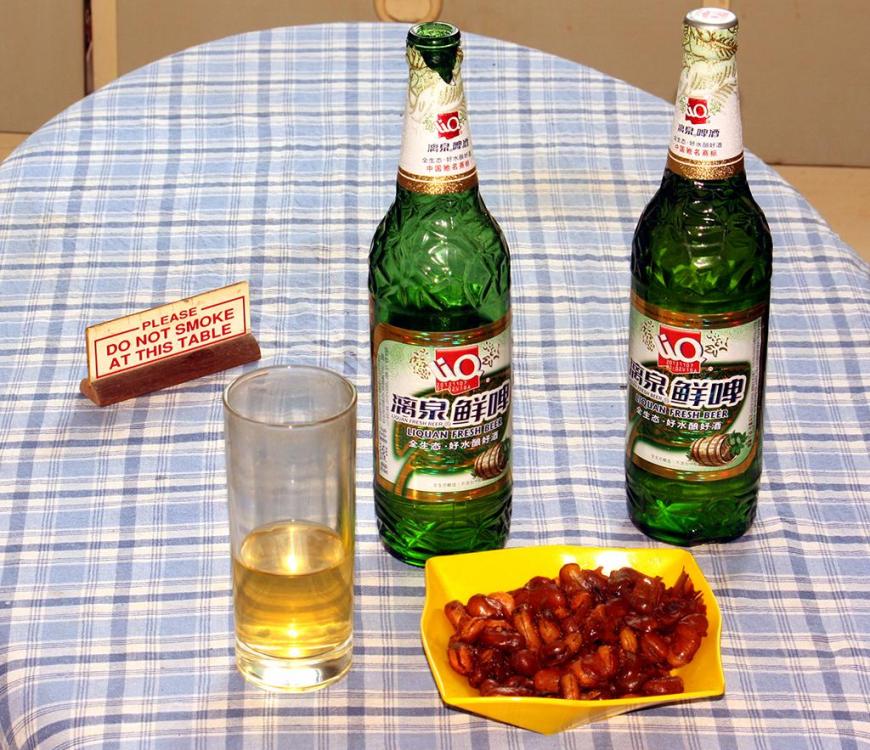26. 漓泉啤酒 (lí quán pí jiǔ)
Beer is not, of course, traditional in China’s culture but its use and production has grown exponentially over recent years. 青岛啤酒 (qīng dǎo pí jiǔ) Tsingtao (Qingdao is the modern transliteration) is at least the spiritual home of beer in China. Set up by the Anglo-German Brewery Co Ltd, in 1903, during the time of foreign control known as the Unequal Treaties period. The brewery fell into Japanese hands between 1914 and 1922 when it became Chinese owned until World War II, when Japan took control again until 1945. The company was eventually nationalised by Mao after the communist takeover in 1949. It is now largely owned by the Chinese state and Asahi Beer. First exported in 1954, it is China’s most widely exported beer, being available in 90 countries. It remains very popular domestically, too.
But it isn’t the only beer by a long shot and it isn’t the most popular in Guangxi. That is, without question, 漓泉啤酒 (lí quán pí jiǔ), Liquan Beer, brewed in Guilin and named after the River Li which flows through that city. It has an 80% market share in Guangxi. Like almost all beer in China, it is a light lager, coming in various strengths from 5 - 11% alcohol. Originally operated by a joint venture Chinese-Austrian company, it is now owned by Beijing Yanjing Beer Group, China’s largest. Until recently, the brewmaster was a German national.
Probably the most popular in their range is ‘1998 Liquan’. This is not a vintage, but the beer is so named in honour of a certain Bill Clinton, who visited Guilin in that year. Liquan beer is considered to be the only suitable beer for Yangshuo’s beer fish dish, with both the water for the beer and the fish coming from the same river.
When I first came to Liuzhou, there was a local brewery making 鱼峰啤酒 (yú fēng pí jiǔ ), named after a local landmark. The stuff was foul, weak and smelled of formaldehyde. I heard one person rudely and disparagingly refer to it as ‘peasant’s beer’ meaning only a poor peasant would buy it. It was very cheap. The peasants have better taste. The brewery closed twenty plus years ago.
The main problem I had in the early days was getting a chilled beer. Chinese men are happy to drink the brew lukewarm. With summer temperatures heading for the 40℃s, I need my beer ice cold. Fortunately, after years of training, they are catching on and I have no trouble scoring some chilled refreshment. That said, I mainly drink beer at home. I don’t like drinking in Chinese company. Most people treat beer drinking as a competitive sport with drinking games and endless toasts. The first question you will be asked is “How many bottles can you drink?” I now refuse to play.


